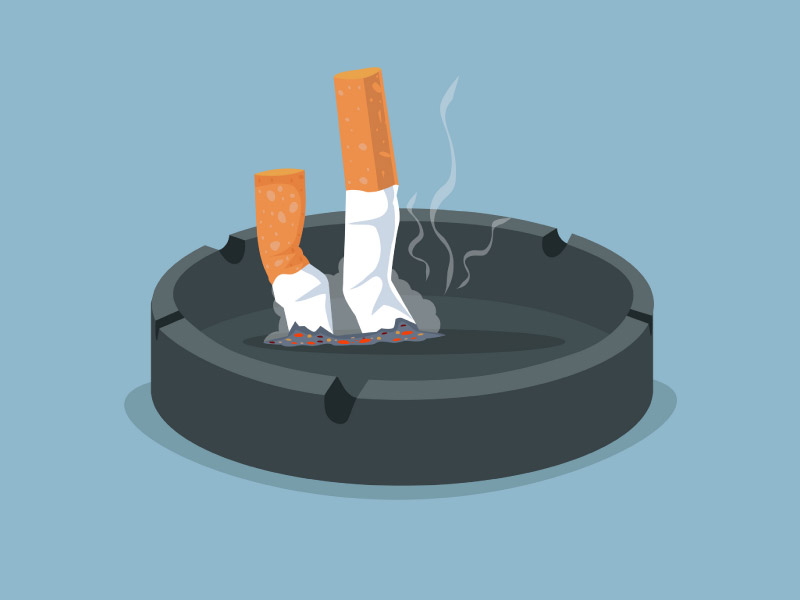Gap seen in smoking rates after stroke versus cancer
By American Heart Association News

Almost 40% of smokers who survived a stroke kept lighting up afterward, a new study found, and stroke survivors were less likely than cancer survivors to quit.
The study, published Wednesday in the American Heart Association journal Stroke, also found that rates of quitting varied depending on the survivors' ages and where they lived.
The research highlights the need for smoking cessation programs aimed at stroke survivors, the study's lead author, Dr. Neal Parikh, said in a news release. Similar programs have been successful in people with cancer.
"If you told a stroke neurologist that 40% of their patients don't have their blood pressure controlled or weren't taking their aspirin or their cholesterol-lowering medication, I think they would be very disappointed," said Parikh, a neurologist at New York-Presbyterian/Weill Cornell Medical Center in New York City.
"These results indicate that we should be disappointed – more of our stroke patients need to quit smoking," he said. "We can and should be doing a lot better in helping patients with smoking cessation after stroke."
The rate of post-stroke smoking hasn't decreased for years, even though smoking raises the risk of more health problems or of death from a subsequent stroke or heart disease.
Researchers analyzed data collected in annual telephone interviews between 2013 and 2019 from the Centers for Disease Control and Prevention's Behavioral Risk Factor Surveillance System. It's a national health survey that collects information about chronic health conditions and health-related behaviors.
The study included 74,400 respondents who reported having a prior stroke and a history of smoking, and 155,693 who identified as cancer survivors with a history of smoking.
The stroke group had an average age of 68; 45% were women, and 70% were white. The cancer group's average age was 69; 56% were women, and 81% were white.
After adjusting for demographic factors and the presence of smoking-related medical conditions, researchers found stroke survivors reported they were 28% less likely to have quit smoking compared to people with cancer.
And although 75% of stroke survivors age 60 and older quit smoking, only 43% of those younger than 60 did.
Survivors in the eight states with elevated stroke rates known as the Stroke Belt – North Carolina, South Carolina, Georgia, Tennessee, Alabama, Mississippi, Arkansas and Louisiana – were around 6% less likely to have quit smoking than stroke survivors in other areas.
The study was limited because the data was self-reported and included only people who lived independently, rather than those living in a nursing home or similar facility.
The findings should spur work on smoking cessation programs for people who have had a stroke, said Parikh, who also is an assistant professor of neurology in the Feil Family Brain and Mind Research Institute at Weill Cornell Medicine.
"Programs for patients with stroke and cardiovascular disease should be as robust as smoking cessation programs offered to patients with cancer," he said.
At National Cancer Institute sites, programs for patients often include a dedicated, intensive counseling program and health care professionals with specific knowledge about smoking cessation medications, Parikh said. "Hospital systems could also adjust care protocols so that every stroke patient receives a consultation with a tobacco cessation specialist and is enrolled in a smoking cessation program with the option to opt out, as opposed to having to seek out a program."
If you have questions or comments about this story, please email [email protected].





